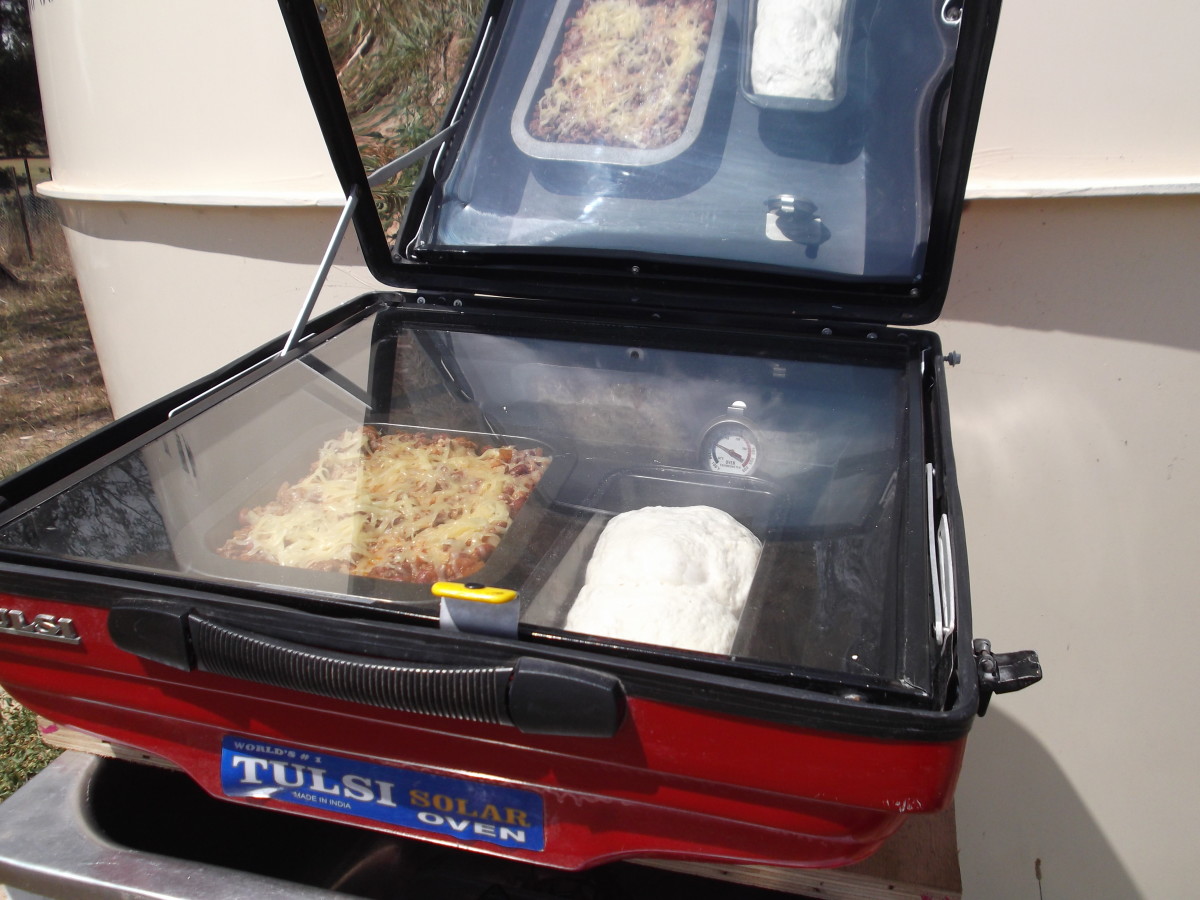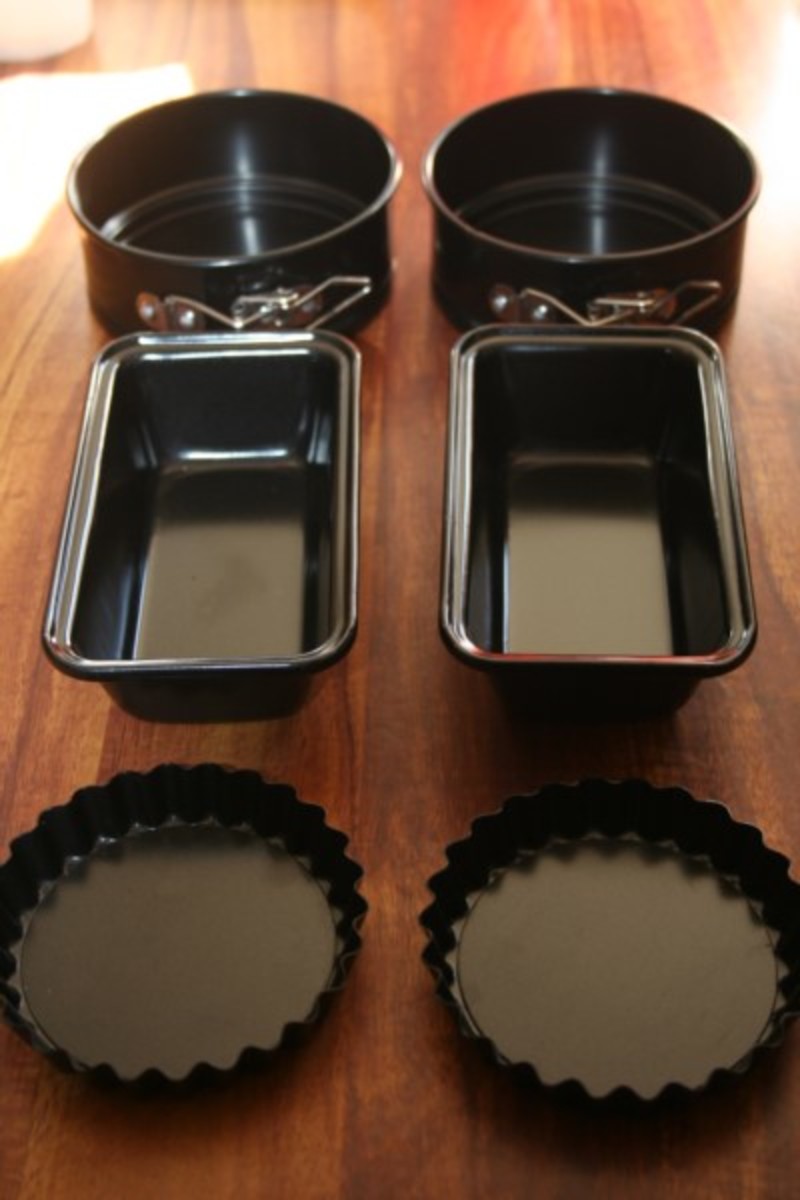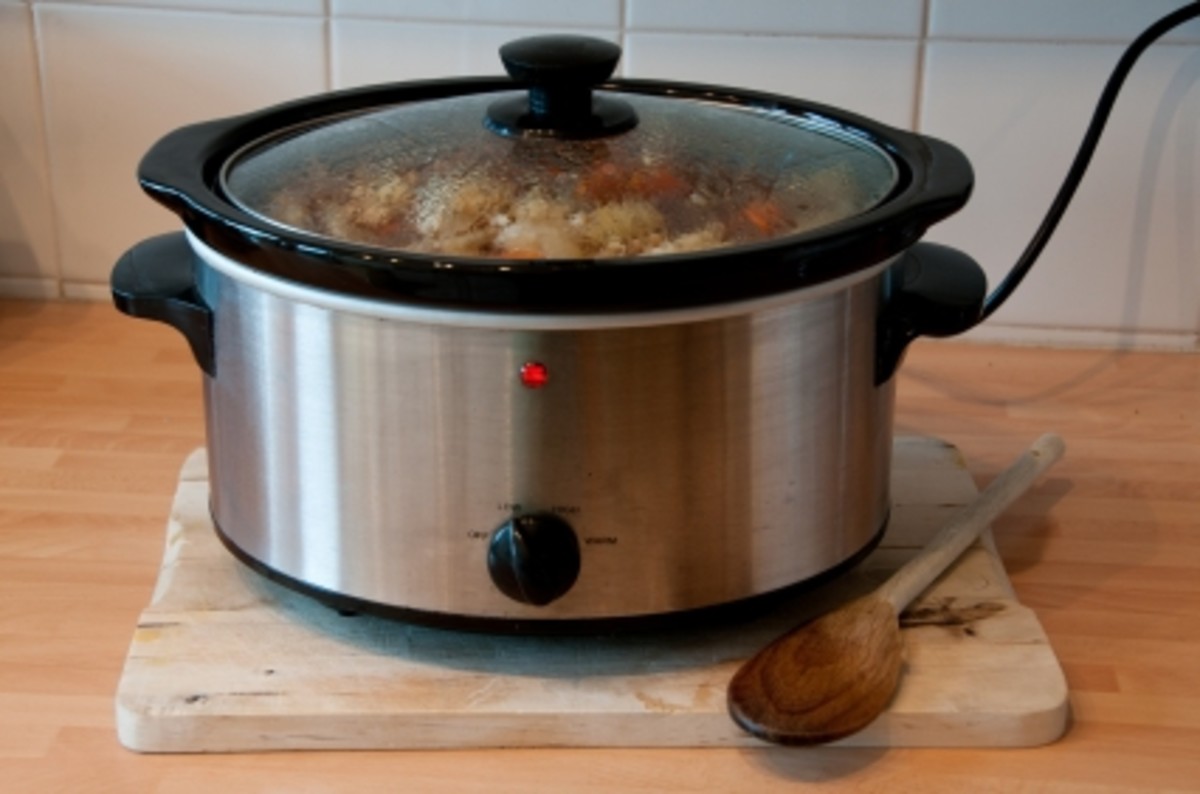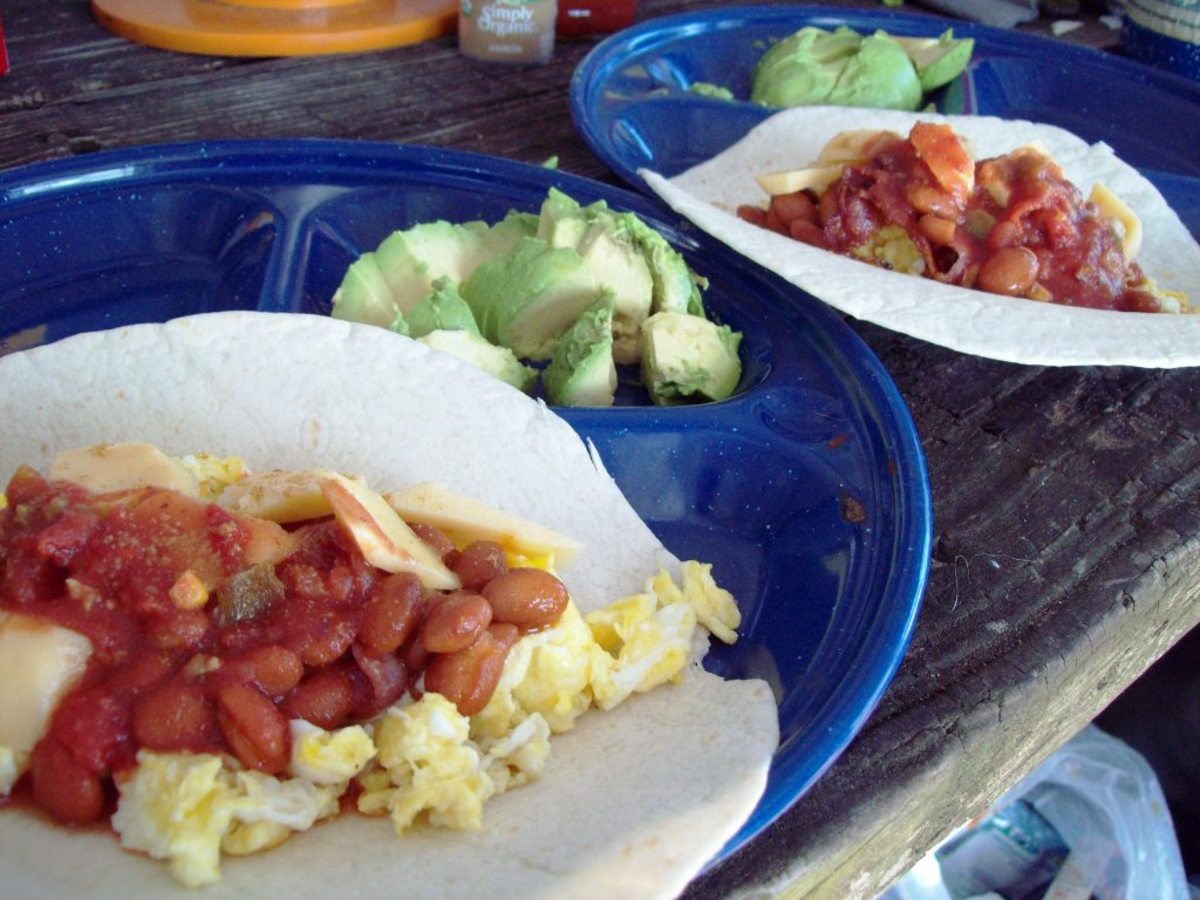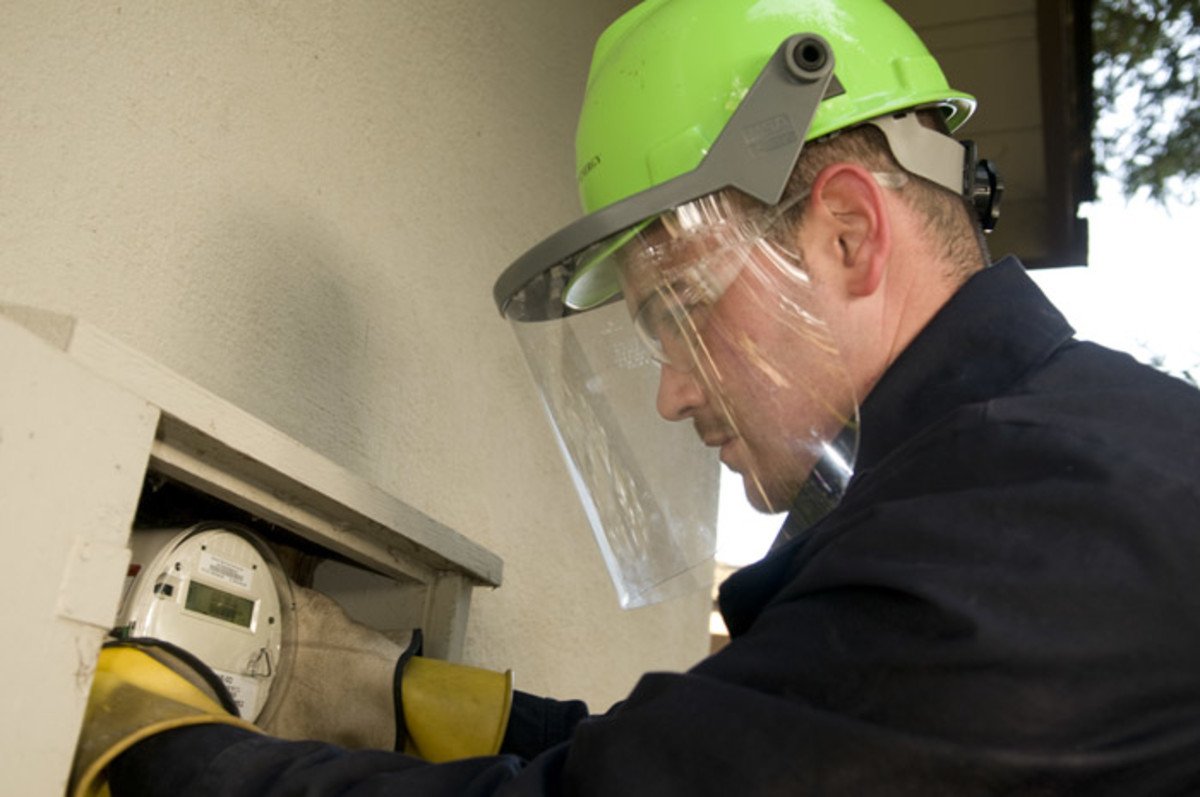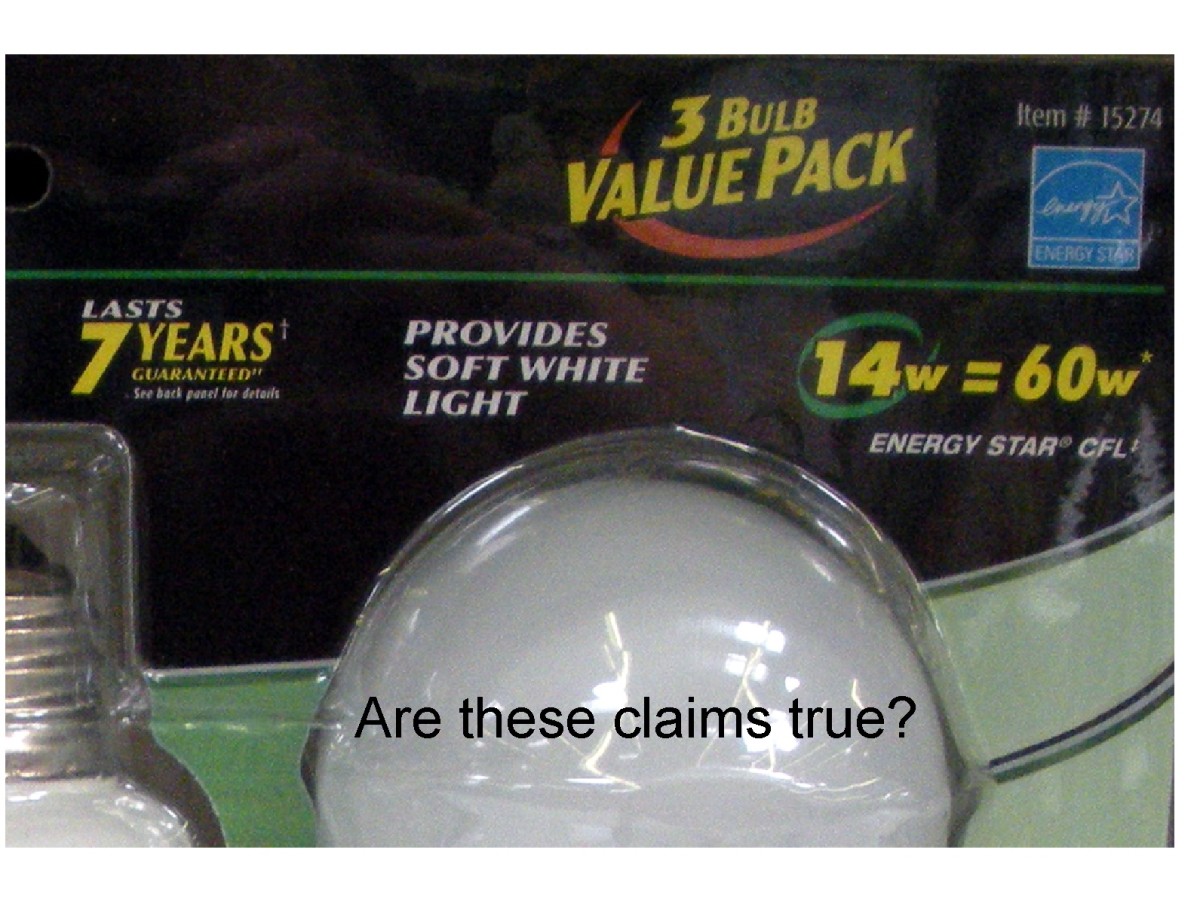Solar Cookers
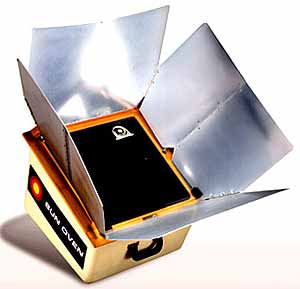
Letting The Sun Provide The Energy
Solar ovens, also known as solar cookers, are cooking devises that use sunlight as its main energy source. Generally, when you use a solar oven you do not have to use any other energy source. Because no other energy is used, solar ovens are a great way to make great food and save costs, help the environment and save money at the same time. This is especially important in developing nations that still use wood as the main source of energy that are also facing problems with deforestation and other problems caused by limited resources.
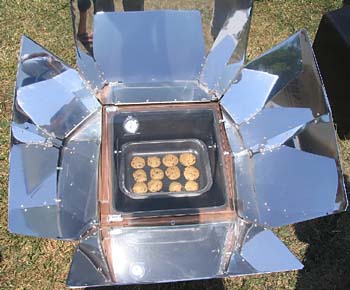
How A Solar Oven Works
There are many different types of solar ovens but almost all have the same basic principles. A devise like a mirror or other reflective material concentrates light and heat from the sun onto a small cooking area. The light from the sun is converted to heat by absorption into a dark pan or surface and the heat is trapped in the cooker. Most solar ovens use several different methods to achieve the end goal which is to absorb enough light and heat sufficient for cooking a great meal.
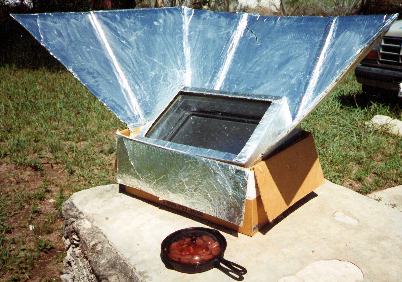
Types of Solar Ovens
On today’s market there are over 65 different designs of solar ovens with hundreds of different variations. Generally, however, solar ovens can be classified into five different categories: box ovens, panel ovens, solar kettles, parabolic ovens and hybrid ovens. While all types have the same basic purpose, each provides excellent heating methods in different weather situations. To be safe, however, the hybrid cooker is probably the safest bet as it comes equipped with conventional oven systems for those days when the sun just will not cooperate.
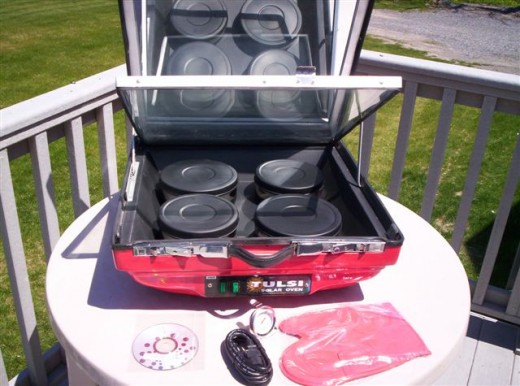
How to Use a Solar Oven
Generally, food is prepared the same way on a solar oven as any other oven or stovetop. However, because of the concentration of heat on a solar cooker, food is generally cut into smaller pieces to account for the limited cooking spaces. Cooking times depend on the food being used, the devise in play and the weather conditions. It is best to do some research on what solar oven suits your particular needs.
For More Information
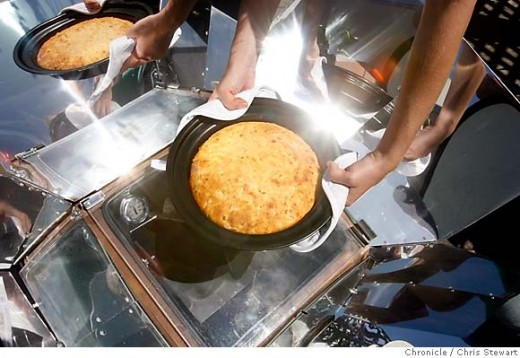
Advantages and Disadvantages
The advantages of using a solar oven are many. First, solar ovens are part of an overall alternative energy strategy and can go a long way to preserve precious natural resources. Second, after an initial cost of building or purchasing a readymade solar oven, an individual user can save money on energy costs. Third, solar ovens are fairly lightweight and compact making them easy to take along on camping trips and other outdoor events.
However, there are also some disadvantages to solar ovens. First, solar ovens are not fully accepted in the mainstream and many oppose them because they are much different than traditional cooking methods. Second, because they are solar ovens, they may not always be at the ready depending on weather conditions. Third, most solar ovens take more time to properly cook food than conventional ovens and therefore take more planning for cook time.
Related Articles
- Residential solar power systems - solar ovens and solar cookers
A solar oven uses solar energy as its sole source of fuel, and they therefore cost absolutely nothing to run.They are fantastic to use when camping, trekking, cooking outdoors, or installing in the wall of a house. Although mainly promoted in the thi


